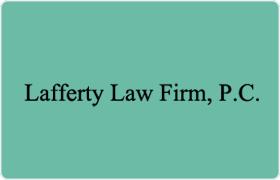Nashville Credit & Debt Lawyer, Tennessee
Sponsored Law Firm
-
 x
x

Click For More Info:
-
Lafferty Law Firm, P.C.
1321 Murfreesboro Pike Suite 521 Nashville, TN 37217» view mapBankruptcy & Debt Over 30 Years Of Experience
Susan S. Lafferty is a CPA and Attorney who enjoys helping people with financial problems. She is located in Nashville, TN where she has lived for over 30 years.
800-936-9071
Tom Bryant Norris
Corporate, Credit & Debt, Labor Law, Elder Law
Status: In Good Standing Licensed: 29 Years
Tom Lawless
Dispute Resolution, Banking & Finance, Credit & Debt, Bankruptcy
Status: In Good Standing
Guy Miller Hogan
Estate Planning, Elder Law, Corporate, Credit & Debt
Status: In Good Standing Licensed: 31 Years
Nicholas Ryan Barry
Litigation, Labor Law, Reorganization, Credit & Debt
Status: In Good Standing Licensed: 12 Years
Sabin Thompson
Litigation, Criminal, Civil Rights, Credit & Debt
Status: In Good Standing Licensed: 46 Years
Michael Geoffrey Abelow
Litigation, Reorganization, Credit & Debt, Bankruptcy
Status: In Good Standing
Tony Anthony Saunders
Litigation, Wills & Probate, Reorganization, Credit & Debt
Status: In Good Standing Licensed: 43 Years
 Susan Lafferty Nashville, TN
Susan Lafferty Nashville, TN Practice AreasExpertise
Practice AreasExpertise
